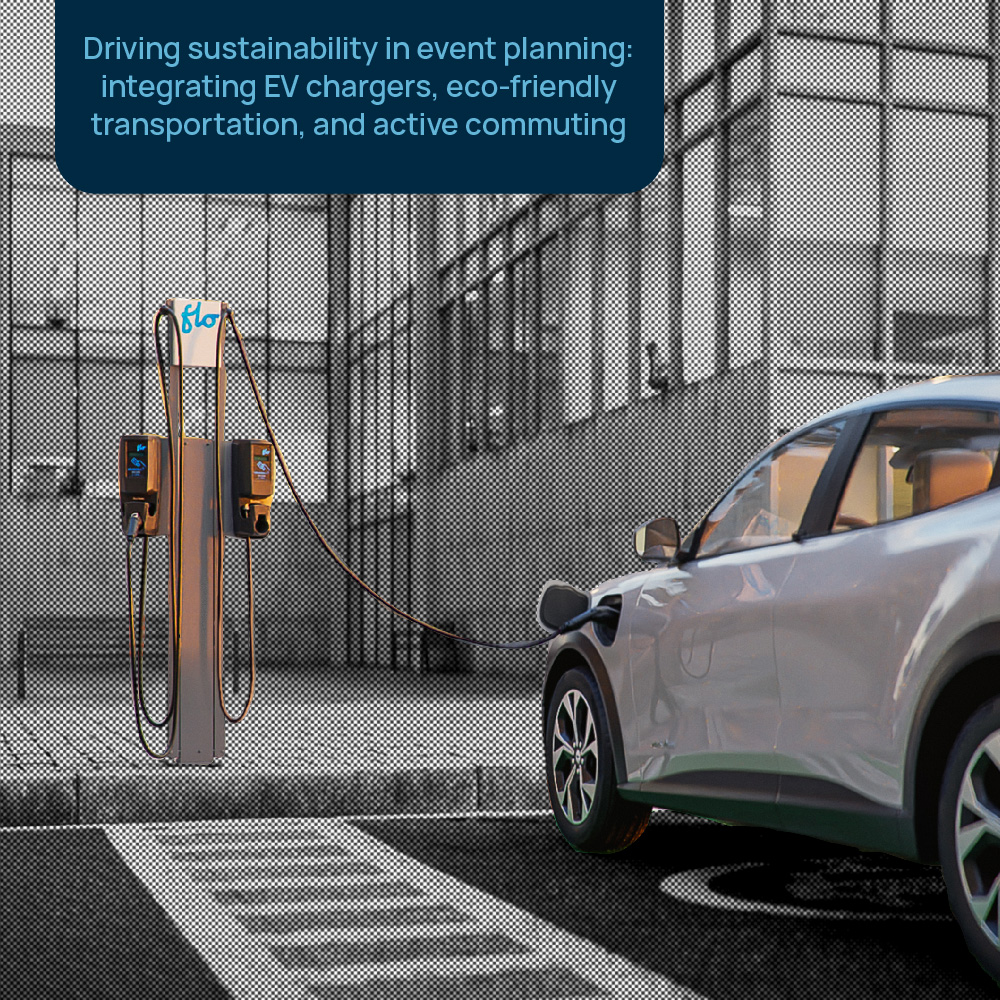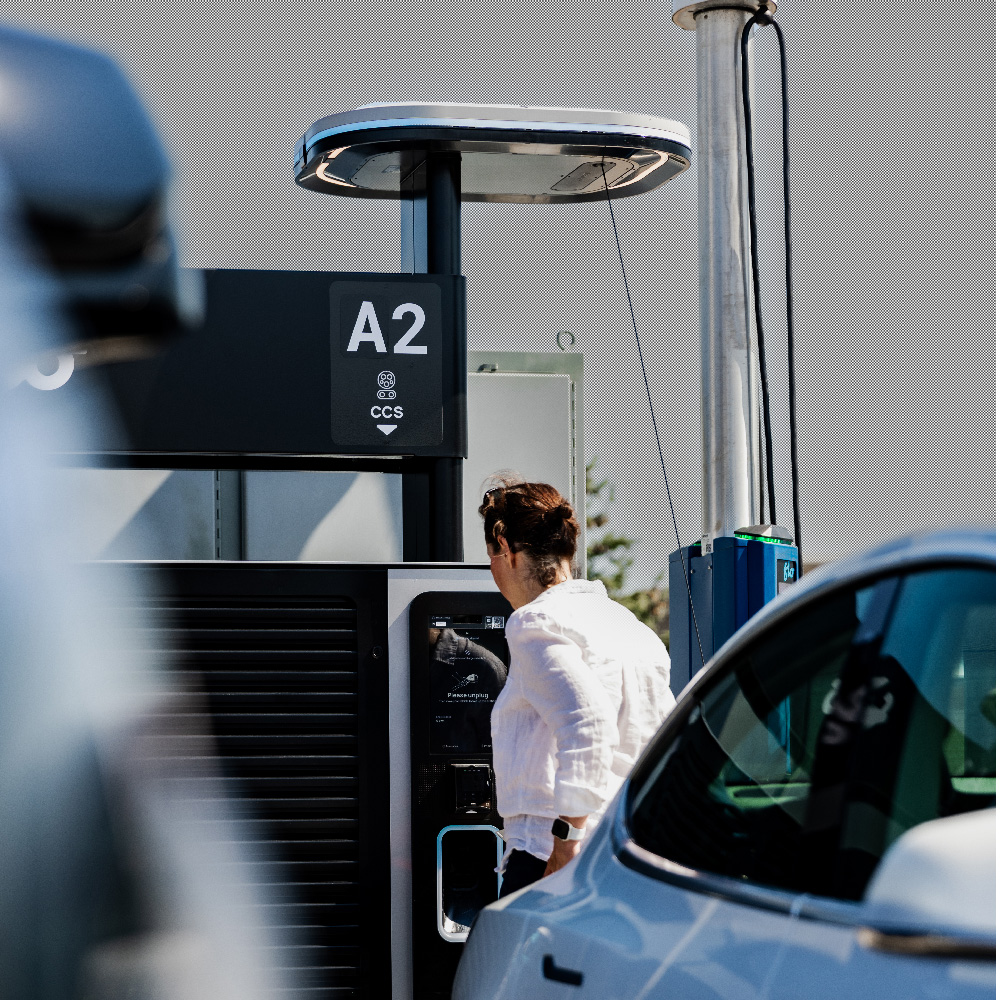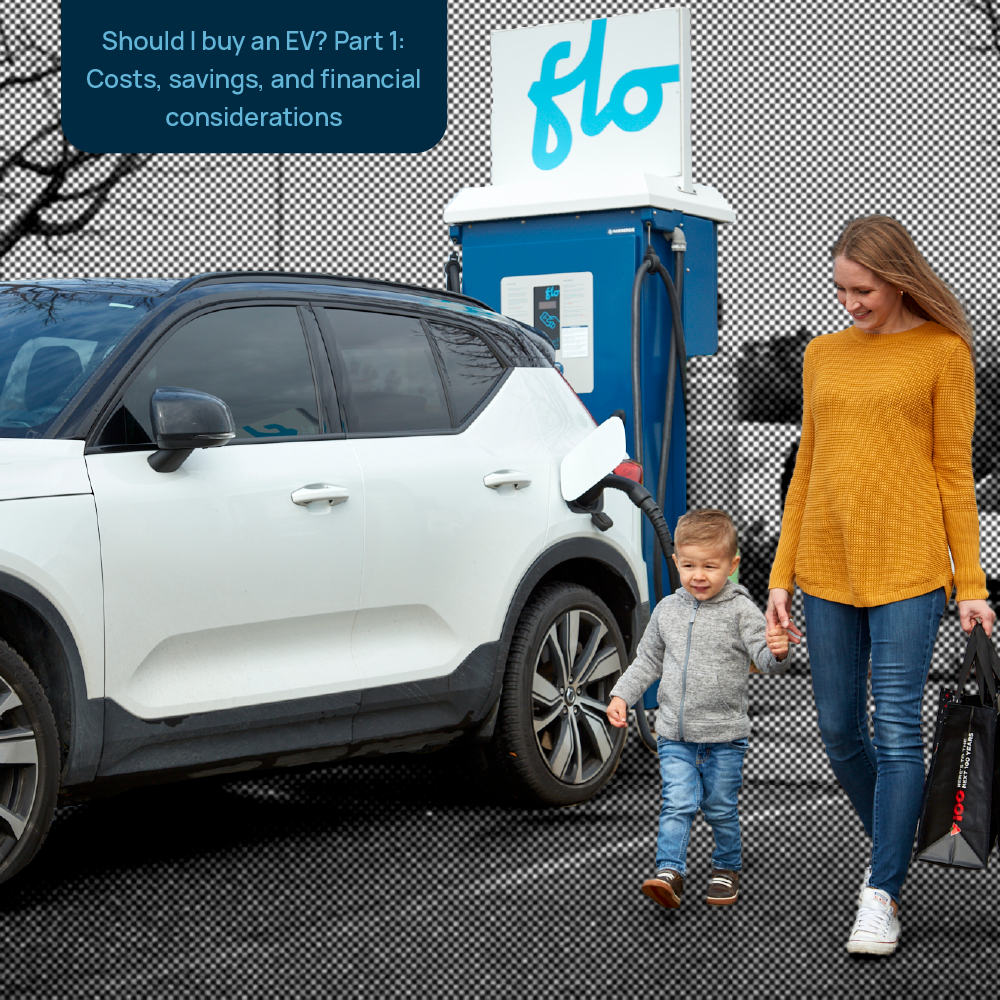Driving sustainability in event planning: integrating EV chargers, eco-friendly transportation, and active commuting
As in-person events have resumed post-pandemic, the events industry — responsible for about 10% of global greenhouse gas emissions — faces growing pressure to adopt sustainable practices, with many attendees looking closely at sustainability practices as part of their sponsorship and attendance decisions.
By choosing central venues, promoting eco-friendly travel, and aiming for sustainability certifications, organizers can reduce their events’ carbon footprint and promote a sustainable future while still connecting in person.
Where transportation comes in:
In a report released by the Net Zero Carbon Events initiative, travel is ranked as one of the five key action areas for the events industry to help tackle climate change, alongside energy, production, food waste, and logistics. Transportation often constitutes the most significant portion of an event’s emissions, with percentages ranging from 50% to as high as 90%.
Tips for sustainable travel and transportation
1. Choose venue locations that support eco-friendly transportation
Beyond a venue’s eco-friendly programs and accommodation features, you may consider the location and available transportation methods for your attendees. Choosing a centrally located venue allows you to share eco-friendly public and active transportation options, such as the nearest subway station, bus stop, bike-sharing rack, or walking directions. This can reduce event-related emissions and promote healthy, sustainable practices.
Additionally, check if your venue is equipped with EV chargers to support attendees with electric vehicles. Many hotels now offer EV chargers, and some venues provide EV charging via valet parking, making access easier. Highlighting the presence of these features in your event promo can also attract and inform attendees who prioritize sustainability and help them make informed decisions about how to attend.
2. Facilitate a sustainable travel journey
The venue location is important for eco-friendly commuting, but that’s only part of the equation. To be truly sustainable in your planning, you may also want to consider travel by out-of-town attendees. Here are some options to consider:
- Arrange shuttles (why not electric shuttles?) from different meeting points like headquarters, subway stations, or airports to reduce independent travel.
- If resources permit, integrate sustainable ride-sharing options or electric taxis into your expense and travel policies to reduce tailpipe emissions from your staff, event teams, and attendees when applicable.
- When helping arrange for transportation options (e.g. for internal corporate events), encourage EV carpooling and the use of personal EVs by offering incentives like a mileage bonus.
For more ideas on how a sustainability-focused expense policy can help reduce travel emissions, read: How the right ESG policy can reduce corporate travel emissions
3. Use resources and apps for efficient planning
Consider preparing a list of FAQs for your attendees that supports efficient and sustainable planning during their travel and stay. Include links to local resources such as public transit apps, bike-sharing apps, and personalized road trip planning tools, like the free FLO trip planner to help identify optimal EV charging locations and routes.
If your venue will have limited EV charging, you may also want to consider setting up a resource to coordinate charging sessions and encourage attendees to move their EVs once charged to help make room for others.
A practice to embrace
Making sustainable choices in event planning, particularly regarding transportation, can make a big difference on an event’s environmental impact and help promote a culture of sustainability within the events industry.


















